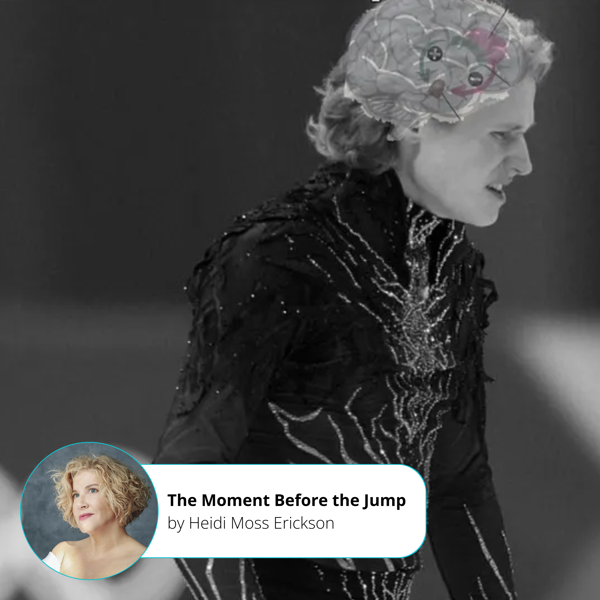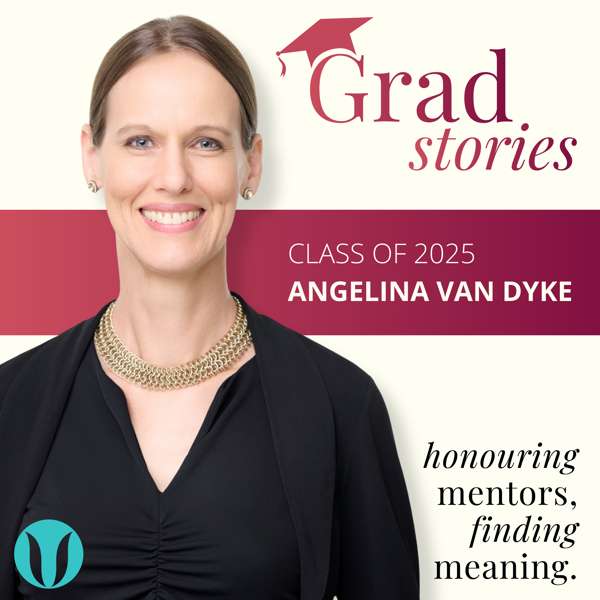Debbie: Hello, so I have with me today Abi Mann and I’m very excited to discuss with her, her project on stammering.
International Stuttering Awareness Day is coming up on Saturday and Abi has conducted an excellent project on this subject, which she is hoping to get published and is certainly good enough to get published.
So, Abi, just before we move into your project, can you just give us a bit of background, tell us a little bit about yourself and what led you to the project in the first place?
Abi: I had done a psychology degree frighteningly almost about 20 years ago now. Alongside that I was training to be a singer, and I had in my mind about potentially music therapy, but life kind of got in the way, and in the interim, I’d built up a private teaching practice.
So, I specialise in holistic 1 to 1 singing, singing lessons.
I was finding that the kind of students that were coming to me were very much people who were struggling in some way with some kind of health condition, be it mental or physical.
I was really believing on a personal level, as well as a professional, that there was a therapeutic benefit to education and learning about your voice and learning about music.
I luckily came across the Voice Study Centre and began studying along the Singing for Health pathway on the MA.
Around about the same time, a student joined who had a very profound, persistent stammer, I’d had students who stammer before, and I was incredibly lucky because she actually took a real interest in what I was studying and said, do you think that you could help me with my voice?
I’m very much not an expert on all the biology and all the different parts of the voice, although, I know what I need to know, but it wasn’t about how can I fix the stammer or eliminate it or reduce it.
It was just, how can I help my student have a happier relationship with her voice.
Because definitely over the last 20 years that I’ve been teaching, I have found that if people have the confidence to sing and that they build a confidence of using their voice, that it follows through different areas of their life.
So the person that comes to me who is scared of singing and then learns an entire song and manages to have the courage to sing it for themselves, most importantly, maybe sing it to their friends or family, will be the same person who speaks up at work if they’re not happy, or the same person who will speak up at the doctor’s surgery, or with their friends or family if they’re not happy.
I have heard so much anecdotal evidence of, well, I used my voice, I felt confident to use it. So it was that kind of thread that had been running through the last few years that made me think.
You know, my student’s got a beautiful voice, she could have the confidence to sing more.
I just had the question ‘could singing lessons help her improve the relationship she’s got with her voice?’
Debbie: And so, this thing that you’re into, doing a real deep dive into the literature, what did you find out?
Is it worth maybe as well, clarifying what a stammer is?
Is it something that’s misunderstood, deceptions around the notion of what is stammering?
Abi: A stammer is really defined as an interruption of speech.
So you can have delays in time. There’s no known cause.
But I think the general consensus is that it’s rooted in neurological origins rather than psychological.
There’s a lot of myths about stammering, about it being a case of somebody being really nervous and anxious, when that could absolutely not be the case at all.
What I did find is that I really wanted to educate myself on what the literature was telling us about stammering, but I also was hearing so much different language and I think that happens a lot with any neurodiversity.
You get so many different terms and terminology.
So my first question was what’s a stutter?
And What’s a stammer?
I found that they’re basically the same, It’s describing the same thing.
And you will have some people who are more person-identified and they’ll say ‘I am a stammerer’, and then other people will prefer to be identified as the person first, and ‘I have a stammer’.
It’s an interruption of speech, you can sometimes have tics or physical symptoms that come along with it as well, it’s not just vocal.
You can have a stammer that is incredibly rare, that would just come out very, very occasionally.
And you can also have a stammer that’s so severe, that speech is absolutely terrifying.
Debbie: When you took that deep dive into the literature, what were the common themes that came out?
How did it change your perception and what did you learn most from that?
Abi: I was really struck by how much shame and avoidance it brings for people. Some people don’t work, they believe it’s impacted their relationships.
There’s been a lot of literature about primarily male stammerers. That could be because the general statistics is that there are more men stammerers than women.
There seems to be an awful lot of shame and self-identity wrapped up, we identify ourselves with our voice and our whole self is wrapped up in voice for all of us.
What I was also finding was in the literature, certainly in the last couple of years or so, that women really tend to have the voice wrapped up with their identity, perhaps even more so than men.
Of course, that’s a whole other conversation about gender stereotypes, but that was really interesting.
There’s long-term psychosocial effects of stammering, anxiety and depression that can be lifelong.
My student’s 60 and you know she’s had it since she was 6, and the literature features a lot of stammerers who are children, they tend to grow out of it.
But the adults kind of get a bit forgotten about, and they’ve lived a life of stammering and there’s an awful, awful disparity, about the quality of life being so much lower for them, just because society isn’t fully accepting.
Debbie: What’s the connection between singing and stammer? I know there’s also a lot of misconceptions around that.
Abi: It’s so exciting and interesting, and we don’t fully understand it yet.
As a general rule, if somebody stammers in speech, that won’t translate to singing.
I say as a general rule, because I have actually seen people stammer in singing, so it’s not impossible, but it’s fairly rare.
One theory is that it’s to do with the rhythm, you can ask somebody to do, say, a tongue twister in singing.
We’d warm up by saying ‘the tip of the tongue, the teeth and the lips’, and that would be really challenging for a stammerer to say,
But if they sang ‘the tip of the tongue, the teeth and the lips’, all of a sudden that feels freeing and they can sing it without any disruption.
I think some of it’s to do with the rhythm, the melody.
I also wonder if it’s a case of, if you’re singing a song and you’ve got the words there, there’s a different neurological thing going on there, because you’re not having to think.
Like I’m talking to you now, all the while I’m thinking about what my next word’s going to be.
But if I was singing a song to you, hopefully, I would know the words that were coming, so I do wonder if there’s that as well.
It’s something that has been of interest for such a long time.
I came across somebody at the weekend, and her grandpa had a stammer, and he had written an article in the 1920’s about his singing teacher helping him to have confidence in his voice by singing, and of course, there being no disruption when he’s singing.
Debbie: So this obviously gave you the rationale for this project.
You saw a gap in the literature as well, didn’t you?
Abi: Yes, there’s lots about people that stammer when they speak who don’t necessarily when they sing.
There’s lots about singing, building our confidence in our voice, and there’s lots about the relationship with our voice being really complex.
But I couldn’t find research about, what if people who stammer are given an opportunity to explore the relationship they have with their voice through singing?
Debbie: Within your project, what I really enjoyed reading was the practitioner insight, as to how you took that almost stammer-informed knowledge, to build a stammer-sensitive lesson, which I thought was just extraordinary.
You didn’t kind of just wade in, teaching an ordinary singing lesson.
Can you just tell us a little bit about your processes, and a bit about how you put that lesson together?
What the evidence base was for you, as much as you can do within the time limit, and within that, how you selected those different elements, and maybe clarify the evidence base for those element?
Abi: I looked at three different sections, which was the lived experiences of stammering, the therapeutic singing and the psychological impact of stammering.
The literature from those three areas gave me three distinct anchors, by which all the content of my lesson was formed.
So the three anchors were mindfulness or compassion based mindfulness, self-soothing tools, and therapeutic singing.
The self-soothing tools were based on grounding exercises that the literature had informed me, helps to self-soothe when people are in distress about stammering.
So that with those relaxation and grounding exercises, that I kind of fed through into the lesson at the beginning and end to kind of foster that relaxed state.
The therapeutic singing was informed by my years of practice and it got, I suppose, validated by the literature. The therapeutic singing would be involving breathwork based on the accent method by Ron Morris, that’s used in speech and language therapy.
Then there was vocal play and musical play, which is used a lot in trauma-informed practise and voice pedagogy.
The mindfulness fed through the whole lesson, but it began with a self-awareness check-in, just before the vocalisation and just after, to encourage awareness of what’s going on in the whole body.
Debbie: I think what it shows is that you really take the time to explore your knowledge of the information and your knowledge of stammer, to explore appropriate methodologies themselves as an appropriate evidence base.
Obviously, mindfulness and Accent Method, that’s quite big, there’s quite a lot there that you must have waded through.
From the practitioner perspective, I think that’s really quite fascinating.
Abi: It was something that was very much a cyclical thing because halfway along, I was realising that elements of my teaching that I hadn’t really focused on as much in the past, they suddenly came more to light because of the feedback I was getting.
For instance, in traditional singing lessons I make sure the focus is on my students voice, not mine, but I was realising that for my student she really benefited from having a second voice to sing alongside with, almost like a companion.
She felt like it was almost a musical holding of another voice being there, so I realised halfway through I need to do more duet or harmony work, or join in.
So that was really interesting from the practitioner side of things for me.
Debbie: There are really interesting links with the trauma-informed work of Elisa Monti, she looks at vocal holding and some really interesting things there as well.
So, when you put that together and then obviously you took it, you implemented it in a single case study.
What I particularly liked about it, is you’ve got a dual-pronged dataset, a qualitative dataset of their emotions towards the stammer and their emotions towards your lessons.
And it kind of made me shiver a bit when I read it, It was very, very moving.
So can you tell us about your first dataset, which was the emotions that they have towards your case study, that they had towards their own voice?
Abi: I did a thematic analysis, there were ten themes, it was a huge project, but the key that was coming out of this was my student’s emotions and feelings to her voice.
When she was speaking, she would use words like terror, shame, fear, I don’t have a voice, exhausted.
But when she described how she felt about her voice when she was singing, it was blissful, freeing, I have a voice, power.
It really made me stop in my tracks because I thought ‘this is the same voice, it’s the same voice bringing about polar opposite emotions being used in different ways’.
The voice that brought about all this terror and shame and fear when speaking actually also made her feel empowered and strong and blissful.
We did a creative reflection after each lesson and she chose creative writing, I would read through the reflections and what was lovely was I could see a gentle evolution where at the beginning of the lessons she was feeling shame about her speech, but enjoying her singing, and by the end, she was realising that the singing lesson gave her an opportunity to speak as well as sing.
We spoke about, what part of the lesson is of most benefit and it was just really moving, I think, to see her reflect as she went along and say, well, actually, I’m able to speak in the lessons, and yes, I stammer, but it’s accepted and it’s a safe space, and that voice that’s frightened me for so long, also gives me huge joy.
So that that was quite moving.
Debbie: When I read it, that polarity, I was really quite impressed that you did that.
I think it was such a great thing to do, to explore her emotions towards her own voice before you simply moved into how she was reacting to your lessons, I think that gave a real depth and richness to the project and certainly as somebody that was really learning from you as a reader.
As well linking back to the literature review and how really linked those themes were being echoed through from previous studies, as well as the corroboration between your work and what came before, I think that gave a real rich context.
In terms of the response to your lessons, I know you’ve touched on it briefly, but can you tell us more about that?
Abi: So, there was the environment, which seems like a strange thing to bring up, but it was something I wasn’t expecting.
I have a sort of home music studio and I try really hard for it to be professional and yet welcoming, and I realised how important the space is.
My student kept saying throughout the whole process verbally and written down that she feels it’s a safe space, it feels like she’s come home.
She was sensitive to the colours and the lighting and it even got to the point where she was confident enough to say to me in one of the lessons that she didn’t like, one of the positioning of the lights.
That really brought to mind about good practice in teaching singing.
There was also the student teacher relationship, I was very aware, especially being a practitioner researcher and an insider researcher, and being the facilitator, as well as the researcher, that our relationship could be the sort of driving force of this enhanced relationship to her voice.
We made that part of the data, and we made that a real discussion point and I think the teacher-student relationship is really key, but I don’t think that should be a reason for not exploring this further, because I think it gives hopefully the insight of what could potentially evolve between a singing teacher and the student.
Debbie: I think one of the interesting ones to me was about like you said before, when it became more of a holistic voice. She saw her voice in a different way.
Abi: She saw it as the whole voice, which was actually a huge thing for me as well, because I’ve been singing professionally for 20 years and I still was saying ‘my speaking voice and my singing voice’.
I realised halfway through, no, this is the whole voice, which is also something that had been mentioned in the literature.
So that was really, really insightful and I think that’s what my student had realised and that this is my whole voice, and I can use it in a strong way.
Debbie: Do you think has implications almost more broadly then, because we almost savagely dichotomise the voice don’t we, as if to say, sometimes it’s almost a ‘you can play, you could play, you can play, you could sing, you can’t sing.’
We see it in education as well, and we’re guilty in terms of the syllabi that we run, as much as anybody else, and that’s really interesting.
Do you think it has those implications?
Abi: I think it’s the language that we use, over the summer, and with a lot of my younger students, I’ve really kind of driven home, this is your whole voice.
I can see certainly in my studio, a shift happening in their mentality, and I think that’s really powerful and I’ve really kind of taken myself to task over it.
I had Covid last month and I was quite poorly with it and I’m speaking fine, but my singing isn’t great, so now I’m really conscious to say to my students, ‘my voice is healing well, but when it sings, it struggles a bit’.
And it can seem like it’s a small linguistic thing, but we know how powerful language is and it can position ourselves differently.
Another thing that came up was self-identity, which had also come up in the literature.
Sally, my student, (that’s a pseudonym), she didn’t think that when she spoke it was a representation of who she was inside.
However, she did think that when she sung, it was a representation of who she was inside.
I think that’s really quite deep when one considers that’s the same voice, it’s her same voice that’s representing who she is, just used in a different way.
Debbie: Absolutely, It’s certainly a profound read, for sure.
So when you took this on, you had no idea about the journey that you were about to go on, so it’s been a real journey for you, which is wonderful.
I know you took this more broadly externally, to the British Stammering Association, tell us about that.
Abi: So the British Stammering Association, which is called Stamma, had a very large conference in the summer, and it was affiliated with the International Stammering Association.
They had their Congress and Stamma had their biannual conference and they fused it together, it was four days in Liverpool and it was incredibly powerful for everybody who attended that conference.
Just so powerful to have hundreds of people in the same space all feeling free to be their whole selves and not having to hide or not be 100% them.
I led two sessions there, I led a singing workshop which was based on the content of the lessons that we’ve done in the case study, but with a different song.
I also did a presentation of my research on the following day, so if people had fun at the singing workshop, but they wanted to know the theory behind it, they could come along to my talk the next day and that was really lovely.
I was very scared for two reasons, one, it was my first conference where I was running workshops and speaking.
Two, it was research that was so close to my heart, I wanted to do my student justice and I was really scared that I wasn’t going to do her justice, I thought it was really important.
I have no idea if anybody else would be interested because it is like you say, new ground, but I got really positive feedback.
Debbie: I imagine that you did, the report itself, academically was very well executed, it was very ethically done.
I think what struck me was the depth and the very well thought out ethical premises of it and so I could imagine it was very well received.
In terms of where it goes now, what next?
Abi: I’m in my final year of the MA Voice Pedagogy and I would really like for my final project to be a development of this.
As you said, it was a case study, it was a pilot, I was scared starting it actually, because I didn’t know what would come at the end of it.
I didn’t know if I was going to find that my singing lessons were going to have any kind of benefit, so I have been really thrilled by the whole process, and I think in order to explore the reliability or the transferability of this, I’d love to develop it so that I could deliver the singing lessons to other stammerers who don’t know me.
So we don’t have that established relationship of trust already, that we can just start new, purely on this singing lesson design.
Also, to maybe add that I’m a real qualitative researcher at heart, but it would be nice to mix it with quantitative to measure self-esteem or anxiety or confidence about the voice, and maybe measure that before after the singing lessons.
Just to see if there’s anything further I could help develop with that, so that’s my hope!
Debbie: Is there another dimension that you would add to those lessons?
Abi: That’s something I’m thinking of at the moment, mainly because the lessons with my student, Sally, even though I knew her, I still did an informal discussion, a sort of semi-structured interview at the beginning to get some context.
I don’t feel like even though I’m confident in the delivery of the singing lesson programme, like I could just meet somebody and go ‘right let’s deliver it’.
There needs to be some kind of pre-meeting and getting to know one another first. There’s also the logistics of the fact that, geographically speaking, is just something that I go to, and if so, I don’t have full control over the environment.
Or is this something we do online and then online adds another dimension to it?
Debbie: I guess that you’d be able to access a greater sample, wouldn’t you? If you did it online.
Abi: I think so, yes.
Debbie: It’s very interesting, there’s lots to think about!
Thank you so much, it was great to speak with you and it’s been so interesting to hear you talk through your processes with us.
Abi: You’re welcome, thank you.
Abi Mann-Daraz
Abigail runs a busy private practice specialising in harnessing voice and musical confidence through ethical, informed singing teaching, professional voice coaching and neurodiverse sensitive pedagogy.
Debbie Winter
Debbie Winter (LLB Hons, MA) lectured in Law and sang professionally on the jazz scene before deciding to change careers and become a vocal coach. She noticed a...






